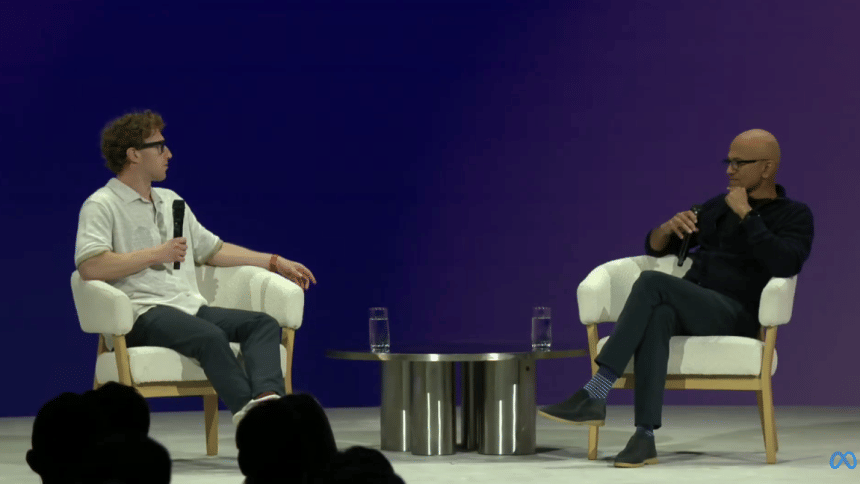LlamaCon 2025: Meta challenges OpenAI with open-source AI vision

Meta has used the stage of its inaugural LlamaCon to draw a clear line between its open-source AI philosophy and the more closed, proprietary approach used by OpenAI. At the inaugural LlamaCon, a new event dedicated to developers building with the company's open-source AI models, Meta has unveiled a series of major product updates and strategic partnerships.
With over a billion downloads of its Llama models and a growing global community of developers, Meta is now positioning Llama not just as a powerful alternative, but as the foundation of a decentralised future for artificial intelligence (AI).
Unveiled at the event, the new Llama API offers developers many of the conveniences associated with commercial platforms like OpenAI's, including interactive model playgrounds, one-click API access, and SDKs for Python and Typescript. But unlike its rival, Meta insists on flexibility that developers retain full control of their models and weights, with no data retention for training purposes, according to Meta. Models built using the Llama API are portable and can be hosted anywhere which is a sharp contrast to OpenAI's closed ecosystem.
Meta's message is clear: developers should not have to trade ease-of-use for independence. "You're not locked in" was a recurring theme throughout the event, with Meta promising that its new tools make it possible to build custom AI solutions without vendor constraints.
The Llama API, now in limited free preview, supports Meta's most recent models, Llama 4 Scout and Llama 4 Maverick. It also allows fine-tuning on the new Llama 3.3 8B model and provides an evaluation suite for developers to measure performance using their own data. Meta emphasised that these features are designed to promote cost efficiency and high performance while protecting user data which is another philosophical distinction from OpenAI, which has drawn criticism a few times for its more cloudy training practices.
Meta also announced a partnership with Cerebras and Groq to deliver fast inference capabilities directly through the Llama API, enabling developers to prototype and scale with low latency, high-speed access.
In addition, Meta is expanding Llama Stack, its enterprise AI deployment toolkit. New integrations with NVIDIA's NeMo microservices and collaborations with IBM, Red Hat, and Dell Technologies are aimed at making Llama Stack a production-ready option for companies looking to avoid the limitations of proprietary platforms. Meta is clearly pitching itself as the open-source antidote to the AI consolidation happening elsewhere in the industry.
At the LlamaCon, Meta also unveiled Llama Guard 4, LlamaFirewall, and Llama Prompt Guard 2, alongside CyberSecEval 4, a suite of tools aimed at helping developers test and secure AI systems in real-world environments. The company also announced the Llama Defenders Program at LlamaCon 2025 to support partners focused on AI safety.
The event also spotlighted the second round of Llama Impact Grants, awarding $1.5 million to ten international recipients using Llama for public benefit. Among the awardees there were solutions, including E.E.R.S. from the US, which uses a Llama-enabled chatbot to enhance public access to civic services, and Doses AI in the UK, which transforms pharmacy operations with real-time error detection. Other winners include Solo Tech, which provides offline AI support in rural US communities, and FoondaMate, a multilingual study tool that aids millions of students across Africa and beyond, according to Meta.
With LlamaCon 2025, Meta has sent a message to developers and competitors alike that the future of AI does not have to be locked behind a paywall or a corporate firewall.

 For all latest news, follow The Daily Star's Google News channel.
For all latest news, follow The Daily Star's Google News channel. 









Comments